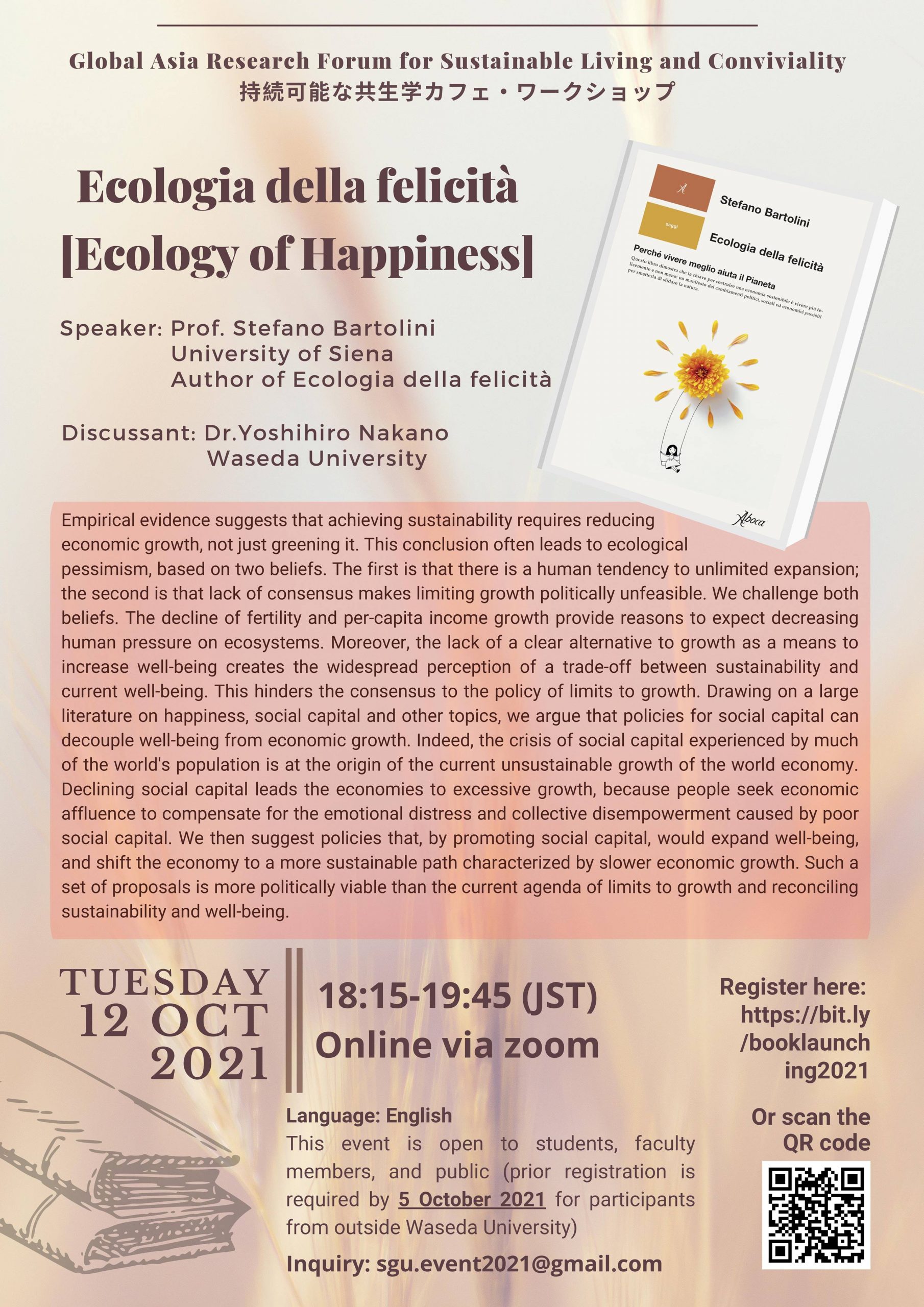The Global Asia Research Center holds an online workshop by Stefano Bartolini, an associate professor of the University of Siena and a visiting researcher of Waseda University. He will talk about his new book Ecologia della Felicità (Ecology of Happiness).
Title: Ecology of Happiness
Speaker: Stefano Bartolini (Associate Professor, University of Siena)
Chair : Yoshihiro Nakano (Junior Researcher/Assistant Professor, Waseda University)
Date & Time: October 12 (Tue), 2021, 18:15-19:45 (Japan Time)
Language: English
Eligible participant: student, faculty member, and public.
*This is online workshop and please finish prior registration by October 5, 2021: https://bit.ly/booklaunching2021
*For inquiry: sgu.event2021[at] gmail. com
Abstract:
Empirical evidence suggests that achieving sustainability requires reducing economic growth, not just greening it. This conclusion often leads to ecological pessimism, based on two beliefs. The first is that there is a human tendency to unlimited expansion; the second is that lack of consensus makes limiting growth politically unfeasible. We challenge both beliefs. The decline of fertility and per-capita income growth provide reasons to expect decreasing human pressure on ecosystems. Moreover, the lack of a clear alternative to growth as a means to increase well-being creates the widespread perception of a trade-off between sustainability and current well-being. This hinders the consensus to the policy of limits to growth. Drawing on a large literature on happiness, social capital and other topics, we argue that policies for social capital can decouple well-being from economic growth. Indeed, the crisis of social capital experienced by much of the world’s population is at the origin of the current unsustainable growth of the world economy. Declining social capital leads the economies to excessive growth, because people seek economic affluence to compensate for the emotional distress and collective disempowerment caused by poor social capital. We then suggest policies that, by promoting social capital, would expand well-being, and shift the economy to a more sustainable path characterized by slower economic growth. Such set of proposals is more politically viable than the current agenda of limits to growth and reconcile sustainability and well-being.

